Avid readers of travel guides and trip advisors, will have certainly come across some descriptions of hotels or places of interest and wondered at their veracity, for example: “Tucked away in the French south-western region of the Cévennes, a natural park of stunning beauty and not far from the town of Millau, now famous for its bridge, the Chateau D’Ayres Hotel, a 16th-century chateau and site of an ancient Benedictine monastery, sits splendidly in its 6 hectares of private parkland…”
A Chateau in the French Cévennes
Back in 2010, my wife and I received a gift voucher for a weekend for two in the hotel of our choice, so we decided to go and check out one establishment in particular for ourselves to see if it lived up to its description.
The voucher came with a guide and one prerequisite: we were to choose a hotel belonging to a specific group of Chateaux hotels. Thankfully, we had the guide because the list of chateau hotels in picturesque locations was considerable.
We needed to choose one from the list and see whether it lived up to its description, but where to start? There were so many chateaux hotels, all in splendid settings and of different types to choose from. From palaces to manors, from mediaeval onwards, located across France, they all offered a variety of themes, ranging from regional products, gourmet, romantic, rustic, sporting, family, spa & cure, seaside, mountain, forests, to, of course, the historical.
Options, Options, Options
Because there were so many options, my wife and I decided to filter our search criteria. To begin with, we excluded all the offers within a 100-kilometre radius of home because, being limitrophe, we could visit them anytime. Next, we excluded all offers beyond a radius of about 400 to 500 km, or 4 to 5 hours of travel time, because we wanted to arrive early enough to enjoy the romantic dinner for two the voucher mentioned.
Then, as we had recently been to the beach, we eliminated that option, along with the spa and family with children themes. And, since we lived in Grenoble, the capital of the French Alps, we ruled out the mountain theme, which left us with romantic, forests, regional products, gourmet, and historical chateau themes.
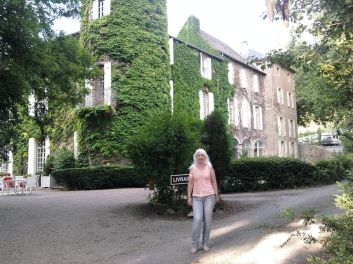
Chateau d’Ayres Hotel.
An Overabundance of Choice
After some discussion, the regional products and forest themes were eliminated, which left us with a short list, with my wife preferring some options and me others. With some negotiating we found a compromise: a hotel apparently within relatively easy driving distance that regrouped the gastronomic, romantic, and old-world chateau themes we found appealing: the Chateau d’Ayres Hotel.
We examined a map and traced a direct route, and according to our calculations, the hotel’s location was some 4 1/2 hours from our starting point.
To help my wife position the hotel’s location, I’d shown her a map of the Cévennes and its location relative to several places we’d previously visited (Beziers, Montpellier). I explained the geographical and geological interest of the Cévennes, with its rivers and gorges, and why it’s classified as a nature reserve park. Apparently, my explanation did the job, as she agreed.
As far as the hotel was concerned, it was an abbey that became a chateau. I’d once lived in a country manor house—a fishing club for staid and established middle-class English society on the banks of the River Tamar in Devon, England—and liked the style, architecture, and interior of such period buildings. I was quite looking forward to seeing my wife’s reaction.
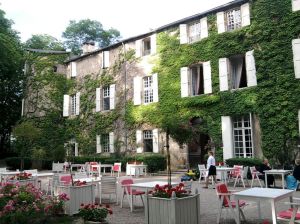
Chateau d’Ayres
The Route
As noted previously, we estimated that it would take approximately 4 1/2 hours to complete the route we traced from Grenoble to our destination. What that particular estimation did not account for was that this particular route was via the A7 autoroute, also known as l’Autoroute du Soleil, which, while the most direct route to the Mediterranean, contains some of the most notorious traffic black spots on the French motorway system.
There was, however, an alternative route, one that would take us to Valence and then west, across the River Rhone, through the Ardeche region’s vineyards, over the scenic southern side of the “Massif Central”—at an altitude of 1000 metres—along some deceptively quiet long straight roads (and multiple radars), past ancient volcanoes, down into the Cévennes National Park, and into the small town of Meyrueis, located near Millau.
The Hotel
Seven hours after leaving home, we arrived at the hotel, and it was exactly as we had seen online: a discreet country manor house nestled in among 20-metre-high conifers. My wife’s initial reaction to the hotel was exactly what I had hoped it would be, and her reaction as she stroked the horses in the enclosure next to where we had parked our car made me feel that we had made the correct decision and that the long drive there had been worthwhile.
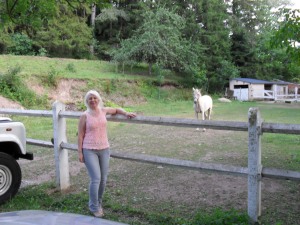
White Horse
After check-in, we made our way up the central stone staircase, adorned with deer antlers, tapestries, and ancestral paintings, and meandered through tiny passageways until we reached our room, quaintly named “Petunia”.
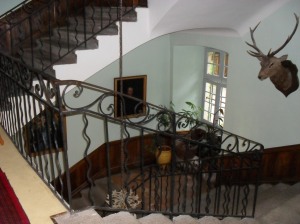
Chateau d’Ayres central staircase
The room, although small and the fittings somewhat “time-honoured,” had an old-world charm about it, making the presence of complementary products and a frustratingly empty minibar seem almost out of place.
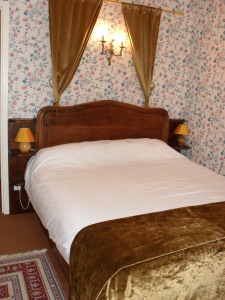
The Petunia Room
Thankfully the view from the window made you forget about all the things that irritate you in a hotel room, and after freshening up, we went downstairs to the bar for an aperitif before proceeding to the restaurant for dinner.
When we arrived at the hotel, I wondered whether, being a chateau, formal dress for dinner was expected, but a glimpse around made it clear that although this was definitely a chateau hotel, the atmosphere was informal and family-friendly.
Dinner was pleasant; our weekend package included an evening menu for two and a glass of champagne, wine, and coffee, which we enjoyed. On the other-hand, the atmosphere of the restaurant was subdued, and although not normally one to comment on ambient temperatures, I did find the ambient room temperature fresh. As for the music. Usually, you would expect something light and convivial, Vivaldi, Mozart, or classical Spanish guitar, anything to create an ambiance, what we heard was far from light and convivial.
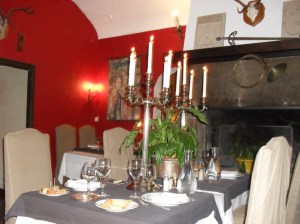
The Restaurant
Sitting facing each other and peering over the candle, a glass of wine in one hand, we hadn’t really taken any notice of the music until the 3rd movement from Chopin’s Piano Sonata No. 2 started filtering into our subconscious. My wife and I stared at each other in disbelief. The restaurant’s sound system was playing “Funeral March.”
Dinner over, we left the restaurant somewhat hurriedly and retreated to the adjacent salon for coffee. There was a sense of déjà vu as we entered the salon and sat down in the thickly upholstered red leather recliners because at one time I had somewhat fortuitously lived at a ducal manor-cum-fishing club residence on the banks of the River Tamar in England.
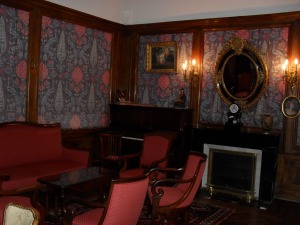
The Lounge
Although the salon’s interior design was resolutely French, with its “Regency” period wallpaper with peacocks, ferns, and other decorations, the structure, its situation, and the original purpose of the room definitely reminded me of the above-mentioned English country manor house, where after dinner the ladies would retire to one room and the men in another for Cognac and cigars, after which everyone would meet up for a round of gin rummy.
The next morning, after a relatively good night’s sleep, breakfast and a quick walk outside the hotel entrance for photos, it was time to checkout, again a major step when evaluating the quality of a hotel, but as with the check-in, everything went smoothly and the brief goodbye from the proprietors was a nice gesture to finish the visit with.
Junctions and more choices
Driving away, we discussed our stay and agreed that aside from the odd choice of music at dinner, overall we enjoyed our stay. The idea of a chateau hotel is appealing, and thirteen years later, the Chateau d’Ayres is a business concept that appears to be thriving.
We came to a fork in the road after travelling a few kilometres. One path led east, towards the Massif Central and home, while the other led south and west, ostensibly away from the Massif Central and in the direction of Millau.
Millau is some forty kilometres from the Chateau D’Ayres hotel and is reached by driving through some very spectacular scenery, that of the gorges of the river Tarn, and some very photogenic villages. Taking the longer, but infinitely more scenic route through the Gorges to Millau was well worth the additional driving time, especially when it’s sunny.
The reputation of Millau is such that whether you’re young, foreign, or both, you go to Millau for the bridge. If you’re French and/or of a certain age and you drive into Millau, you are so relieved that traffic jams that once made Millau so difficult to drive through—it being a major artery for traffic coming down from Paris via Clermont Ferrand and heading for the South Coast—are a thing of the past. Now, if you want to drive into Millau, it’s because you really want to, or if you were looking for the bridge and took the wrong turn at a junction.
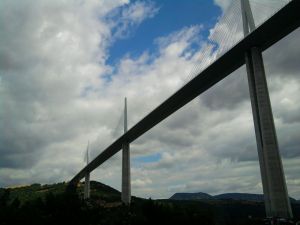
The Millau Bridge
The bridge at Millau is undoubtedly an amazing piece of architecture. Massive but unobtrusive, it blends in rather well with the surrounding countryside. After a brief halt at the souvenir shop and museum and the mandatory photos of the bridge towering above us, we headed towards the motorway access road that actually joins up with the A75 motorway, known in French as “La Méridienne”, connecting Montpellier in the south to Clermont Ferrand on the northern edge of the Auvergne Volcanoes Regional Nature Park.
Although the trip back to Grenoble was longer, it actually took less time, thanks mostly to the A75 motorway, one of the lesser-frequented French motorways. We had, despite a tour of the Tarn gorges and the brief halt at Millau, opted for the faster route rather than using some of the region’s picturesque “Routes Nationales” and had bypassed the towns with their lot of stop/start local traffic, we had transited on our way to the chateau.
Retournerai-je au Chateau d’Ayres?
As a tip of the hat to a French food and travel critic whose style I admire and whose post visit signature question is: “Would I go back there again (retourneria-je)?” Would we go back to Chateau d’Ayres? Probably not. Not because we weren’t satisfied, but simply because there are so many more chateaux to visit in France.
If you found this post interesting thanks for considering paying a coffee to help sustain my work https://ko-fi.com/ripper38

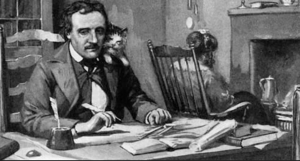
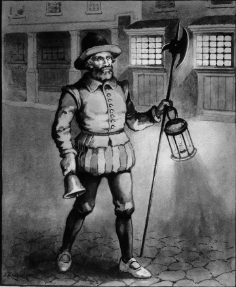


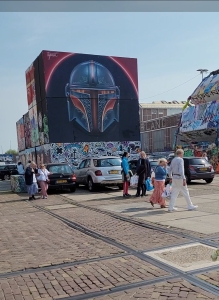
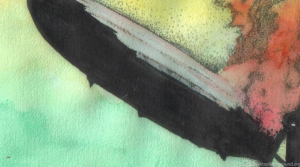

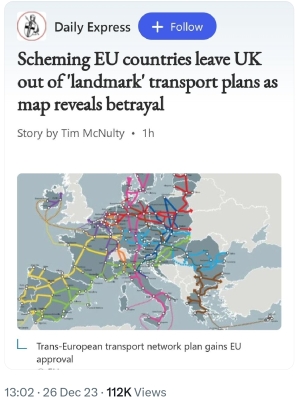
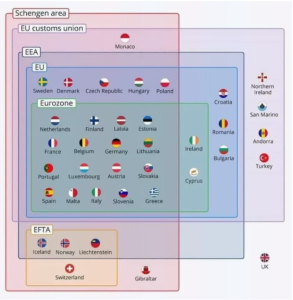

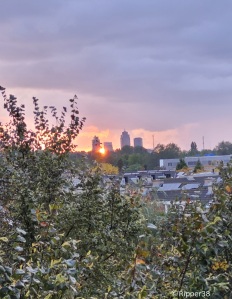








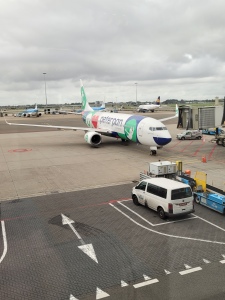
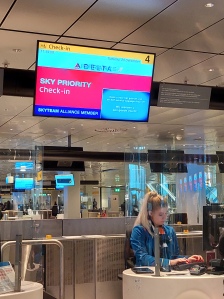




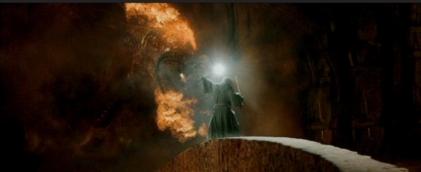
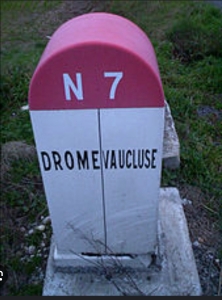
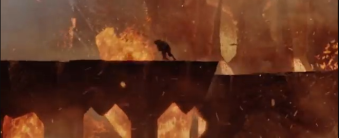

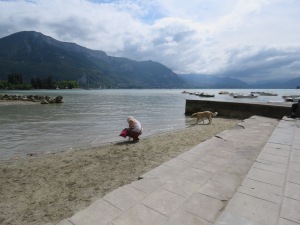
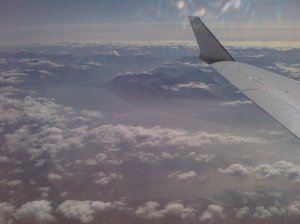
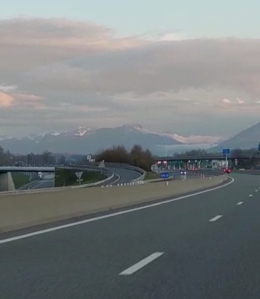
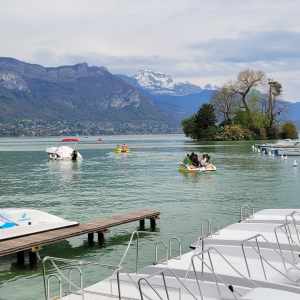
You must be logged in to post a comment.